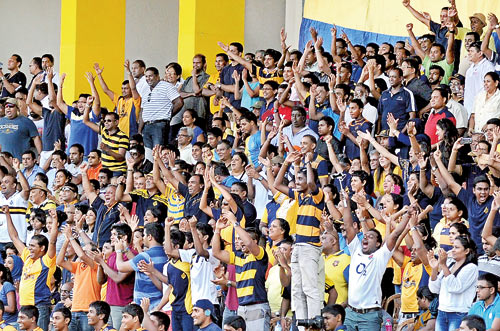Are they being passionate or sentimental
View(s):Watching rugby surrounded by fanatic school supporters makes me wonder whether these vociferous are passionate or sentimental. Passionate is when they are driven by strong belief or feelings; sentimental if they are driven or prompted by their feelings. Listening to the barbs, I think they are more mental without sentiment and are neither passionate nor sentimental. The comments they make are more a case of them versus us or theirs versus ours.
Mental is because everything is against ‘us or for them’. If ‘they’ give a late or dangerous tackle ‘we’ yell for a yellow card to be used. If ‘we’ do, this is rugby and not netball. A serious mental issue in thinking that netball is all about being a lady like game. There is so much talk in netball for the need to introduce sanctions for repeated foul play like in rugby and basketball. Read ‘Netball needs to get tough on foul play,’ Stuff .co.nz. There is argument in the game that netball should be about skills and not body contact when one looks at foul play records and management of the game.
The observation is: the reason for involvement in shouting hoarse is mental than being one of sentiments or passion. I wonder what good this does to the game of rugby; with schoolboys who have to be developed not only in game skills but in life skill too. The way of thinking cannot be swept away as the many measurements of success have to be line with the thinking of money bags that support the game. There is also the fear of being thrown away to the bin from your valued position in school societies, by peers who are emotionally driven when the team does not perform.
 What can be done is complicated as the pedagogues too are helpless at times. Misfits to parliament are a product of schools and when they do not end in parliament they come back to school. Listening to commentaries during the Sri Lanka Pakistan third Test, I believe it was Wasim Raja who was talking about the referral system and the decision staying with the on field umpire. He went onto say that about 6 per cent of the decisions may not be correct.
What can be done is complicated as the pedagogues too are helpless at times. Misfits to parliament are a product of schools and when they do not end in parliament they come back to school. Listening to commentaries during the Sri Lanka Pakistan third Test, I believe it was Wasim Raja who was talking about the referral system and the decision staying with the on field umpire. He went onto say that about 6 per cent of the decisions may not be correct.
The mental attitude of abuse taunt throwing missiles is not present when an umpire leaves the field. This is quite in contrast to the mental attitude at rugby matches where some expect 100 per cent accuracy from a referee who does his job while running during the eighty minute period as compared to a cricket umpire.
A master of a schools team explained that issues in rugby is because of emotions that are aroused by the nature of the game. The other is that the flare ups are supported by people who fail to realise that they have left the school.
The name calling starts as in their opinion the referees decisions do not match ‘their expectations’. Win loose or settle for a draw; at least one has to start whining about referees. The complaints are like those of a woman who reaches menopause; which makes you think whether it was only this one that has had such an experience in life.
Remember the referee probably worked his bottom to get to referee that match unlike you who only had to pay for your transport and a ticket for the match. The difference comes from the fact that they have a way in thinking the way the game is played and that has an effect in the style of play. This is known by coaches, players as well as fans but you prefer to add an adjective of the word bias when you describe the referee. It is like calling soup a gourmet dish when soup is off cuts boiled in water. Then what can be done when some love the soup.
It is in this frame that I watched the schools knock out semi final games where Trinity came close to piping Isipathana if not for the many unforced errors that took the game off them. In a game that had over 35 scrums the ball handling was much to be desired while the occasional run in the game kept the score board ticking. The comment of the day was that the referee did not know what he was doing as he pointed to a 22metre drop out when the ball was kicked over the dead ball line and there is an option of a drop out or a scrum where the ball was kicked. When the referee pointed a drop out the players wanted a scrum which was around 1/2 metres over the 22-metre line. The referee when asked told that he thought the advantageous position is the drop and not the scrum which was just over the 22-metre mark. The player wanted the scrum and I gave it. Who needs to get to see the shrink?
In the other semi-final Science trounced Royal by 52 to 26 as the records will show. That is what the records will show however much you may say eight or ten of regulars did not play. On the other hand Royal still played unlike others who called it a day and 21 points out of their total came in the second half. That is something that has to be appreciated. Then the green school lost an opportunity to have another go at the arch rivals. Sources at Royal say it was a social responsibility to play after having won the league.
Science is coming of age and must be encouraged to behave in the way champions do. Some of the overeager spectators must not think that shouting insults and threatening to be physical when decisions go against you is what made teams come to the top. The good side is that those who are in charge take control and put in place others who try to step out of place. In a political comment I read ‘In a mental hospital whatever the disoriented way the patients behave the doctors do not follow suit. They stay calm and look after the interest of the patient’. Apt statement applicable to the rugby field too.
Vimal Perera is a former player, coach, referee and an IRB Accredited
Referees’ Educator


